
Fyodor Mikhailovich Dostoevsky, sometimes transliterated as Dostoyevsky, was a Russian novelist, short story writer, essayist and journalist. Numerous literary critics regard him as one of the greatest and finest novelists in all of world literature, as many of his works are considered highly influential masterpieces. Dostoevsky's literary works explore the human condition in the troubled political, social, and spiritual atmospheres of 19th-century Russia, and engage with a variety of philosophical and religious themes. His most acclaimed novels include Crime and Punishment (1866), The Idiot (1869), Demons (1872), and The Brothers Karamazov (1880). His 1864 novella Notes from Underground is considered to be one of the first works of existentialist literature.

John William Polidori was a British writer and physician. He is known for his associations with the Romantic movement and credited by some as the creator of the vampire genre of fantasy fiction. His most successful work was the short story "The Vampyre" (1819), the first published modern vampire story. Although the story was at first erroneously credited to Lord Byron, both Byron and Polidori affirmed that the author was Polidori.

Henry Valentine Miller was an American novelist, short story writer and essayist. He broke with existing literary forms and developed a new type of semi-autobiographical novel that blended character study, social criticism, philosophical reflection, stream of consciousness, explicit language, sex, surrealist free association, and mysticism. His most characteristic works of this kind are Tropic of Cancer, Black Spring, Tropic of Capricorn, and the trilogy The Rosy Crucifixion, which are based on his experiences in New York City and Paris. He also wrote travel memoirs and literary criticism, and painted watercolors.

Russian literature refers to the literature of Russia, its émigrés, and to Russian-language literature. Major contributors to Russian literature, as well as English for instance, are authors of different ethnic origins, including bilingual writers, such as Kyrgyz novelist Chinghiz Aitmatov. At the same time, Russian-language literature does not include works by authors from the Russian Federation who write exclusively or primarily in the native languages of the indigenous non-Russian ethnic groups in Russia, thus the famous Dagestani poet Rasul Gamzatov is omitted.

The Turner Diaries is a 1978 novel by William Luther Pierce, a neo-Nazi and the founder and chairman of National Alliance, a white nationalist group, published under the pseudonym Andrew Macdonald. It depicts a violent revolution in the United States which leads to the overthrow of the federal government, a nuclear war, and ultimately a race war which leads to the systematic extermination of non-whites and Jews. All groups opposed by the novel's protagonist, Earl Turner—including Jews, non-white people, "liberal actors," and politicians—are murdered en masse.
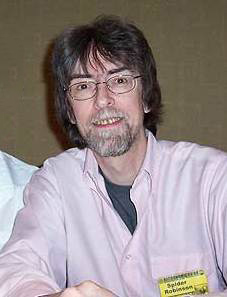
Spider Robinson is an American-born Canadian science fiction author. He has won a number of awards for his hard science fiction and humorous stories, including the Hugo Award 1977 and 1983, and another Hugo with his co-author and wife Jeanne Robinson in 1978.

Andrei Alekseevich Amalrik, alternatively spelled Andrei or Andrey, was a Soviet writer and dissident.
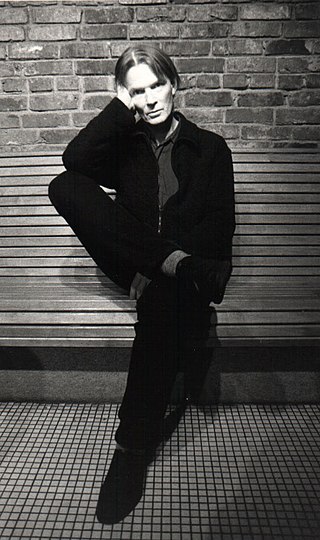
James Dennis Carroll was an American author, poet, and punk musician. Carroll was best known for his 1978 autobiographical work The Basketball Diaries, which inspired a 1995 film of the same title that starred Leonardo DiCaprio as Carroll, and his 1980 song "People Who Died" with the Jim Carroll Band.

The House of the Dead is a semi-autobiographical novel published in 1860–2 in the journal Vremya by Russian author Fyodor Dostoevsky. It has also been published in English under the titles Notes from the House of the Dead, Memoirs from the House of the Dead and Notes from a Dead House, which are more literal translations of the Russian title.
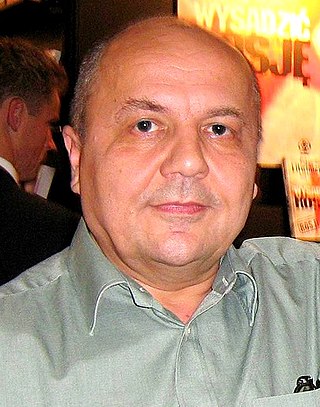
Vladimir Bogdanovich Rezun, known by his pseudonym of Viktor Suvorov is a former Soviet GRU officer who is the author of non-fiction books about World War II, the GRU and the Soviet Army, as well as fictional books about the same and related subjects.
Stephen James Napier Tennant was a British socialite known for his decadent, eccentric lifestyle. He was a central member of the socialite group referred to as "Bright Young Things" by the tabloid press of the time. Tennant was noted for his affected demeanor, appearance and behaviours.
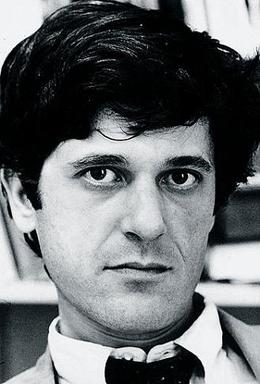
Leonard Michaels was an American writer of short stories, novels, and essays, and a Professor of English at the University of California, Berkeley.
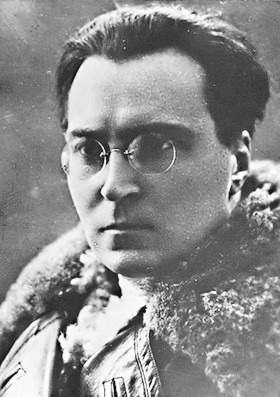
Victor Serge, born Victor Lvovich Kibalchich, was a Russian writer, poet, Marxist revolutionary and historian. Originally an anarchist, he joined the Bolsheviks five months after arriving in Petrograd in January 1919 and later worked for the Comintern as a journalist, editor and translator. He was critical of the Stalinist regime and remained a revolutionary Marxist until his death. He was a close supporter of the Left Opposition and associate of Leon Trotsky.According to, William Giraldi, Serge's novels may be "read like an alloy of" George Orwell and Franz Kafka: "the uncommon political acuity of Orwell and the absurdist comedy of Kafka, a comedy with the damning squint of satire, except the satire is real." In his studies of Serge, Richard Greeman described him as a Modernist writer influenced by James Joyce, Andrei Bely and Freud; Greenman also believed that Serge, although writing in French, continued the experiments of such Russian Soviet writers as Isaac Babel, Osip Mandelstam and Boris Pilnyak and poets Vladimir Mayakovsky and Sergei Yesenin. He is remembered as the author of novels and other prose works, memoirs and poetry. Among his novels chronicling the lives of Soviet people and revolutionaries and of the first half of the 20th century, the best-known is The Case of Comrade Tulayev. Nicholas Lezard calls the novel " of the great 20th-century Russian novels" that follows the traditions of "Gogolian absurdity".

Peter Matthiessen was an American novelist, naturalist, wilderness writer, zen teacher and onetime CIA agent. A co-founder of the literary magazine The Paris Review, he is the only writer to have won the National Book Award in both nonfiction and fiction. He was also a prominent environmental activist.
Ronald Sukenick was an American writer and literary theorist.

Vsevolod Vyacheslavovich Ivanov was a Soviet and Russian writer, dramatist, journalist and war correspondent.

Viktor Platonovich Nekrasov was a Soviet writer, journalist and editor.

Valentin Grigoryevich Rasputin was a Soviet and Russian writer. He was born and lived much of his life in the Irkutsk Oblast in Eastern Siberia. Rasputin's works depict rootless urban characters and the fight for survival of centuries-old traditional rural ways of life, addressing complex questions of ethics and spiritual revival.
The Princess Diaries is a series of epistolary young adult novels written by Meg Cabot, and is also the title of the first volume, published in 2000. The series spent 48 weeks on the New York Times Children's Series Best Sellers List. The series revolves around Amelia 'Mia' Thermopolis, a teenager in New York who discovers that she is the princess of a small European principality called Genovia. The series follows Mia's life throughout high school in the 2000s and juggling regular teenage life with being a royal princess. The books are noted for containing many pop culture references from the 2000s that influence some of the plot.

Vikenty Vikentyevich Smidovich, better known by his pen name Vikenty Vikentyevich Veresaev, was a Russian and Soviet writer, translator and medical doctor of Polish descent.
















